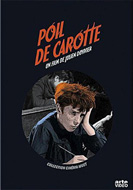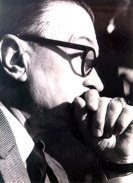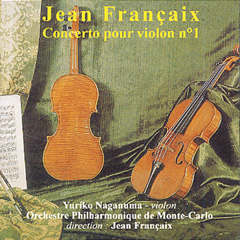Poil de Carotte

- Production : France, 1925
- Length : 108 min at 18 frames/second
- Orchestration : 1st violin, 2nd violin, Viola, Cello, Double Bass, Clarinet, Bassoon, French Horn, Piano
Scenario :
François Lepic has come to spend his holidays with his parents in the Morvan region. He is twelve years old, has red hair and his face is covered with freckles : he is nicknamed Poil de Carotte. The last born of the family, he is hated by his tyrannical mother who reserves her love for her elder son, Félix, a sly and lazy adolescent… Poil de Carotte suffers profoundly from this lack of love. His father seems to be indifferent to the problem, being much more preoccupied by the forthcoming municipal elections.
His rejection plunges Poil de Carotte into the depths of despair and he tries several times to commit suicide. The last time, he was saved by his young friend, Mathilde, who prevented him from throwing himself into the pond. But today, he has decided to hang himself in the hayloft… Fortunately, his father arrives at the last minute to save him and finally has a proper conversation with his son. From now on, Poil de Carotte will have someone to defend him against his mother.
The Director :
Julien Duvivier
 Born in Lille in 1896, Julien Duvivier was a stage actor and then production assistant on André Antoine’s films before starting as a director in 1919. His prolific career – over 60 films – only ended on his death in 1967. After twenty or so silent movies inspired from many different sources, he attained international recognition in the 1930’s with movies which have become classics of “poetic realism”, notably the sound remake of Poil de carotte (1932), La Belle équipe (1936) and Pépé le Moko (1937).
Born in Lille in 1896, Julien Duvivier was a stage actor and then production assistant on André Antoine’s films before starting as a director in 1919. His prolific career – over 60 films – only ended on his death in 1967. After twenty or so silent movies inspired from many different sources, he attained international recognition in the 1930’s with movies which have become classics of “poetic realism”, notably the sound remake of Poil de carotte (1932), La Belle équipe (1936) and Pépé le Moko (1937).
After exile in Hollywood during the war, he returned to France in 1946 but failed to regain his former critical standing, despite such remarkable films as Panique (1947), Voici le temps des assassins (1956) and Pot Bouille (1957). He enjoyed international succes with The Little World of Don Camillo (1951).
The Composer :
Gabriel Thibaudeau
 Born in 1959 in Beauharnois, Quebec, Gabriel Thibaudeau studied piano at the Vincent d’Indy Music School and composition at the Music Faculty of Montreal University. He also participated in summer schools at the Orford Arts Center where he worked on composition with Iannis Xenakis.
Born in 1959 in Beauharnois, Quebec, Gabriel Thibaudeau studied piano at the Vincent d’Indy Music School and composition at the Music Faculty of Montreal University. He also participated in summer schools at the Orford Arts Center where he worked on composition with Iannis Xenakis.
As permanent pianist at the Quebec Film Library since 1988, and recognised as the Canadian specialist in the accompanying of silent movies, he has been invited since 1991 to the Gionarte del Cinema Muto, in Pordenone and since 1992 to the festival Il Cinema Ritrovato, in Bologna, Italy.
Since 1993, among other works for the silent cinema, he has composed a quintet for brass and percussion for the film Straight Shooting, a concerto for piano and chamber orchestra for the film The Fall of the House of Usher, a sextet for the film Foolish Wives, and a Requiem for soprano and piano for the film The Hunchback of Notre-Dame. In association with the Octuor de France he has composed the music to accompany The Man who Laughs, Au Bonheur des Dames, The Iron Mask and Poil de Carotte, as well as adapting for the Octuor de France his orchestral score for The Phantom of the Opera.
 English
English Français
Français











